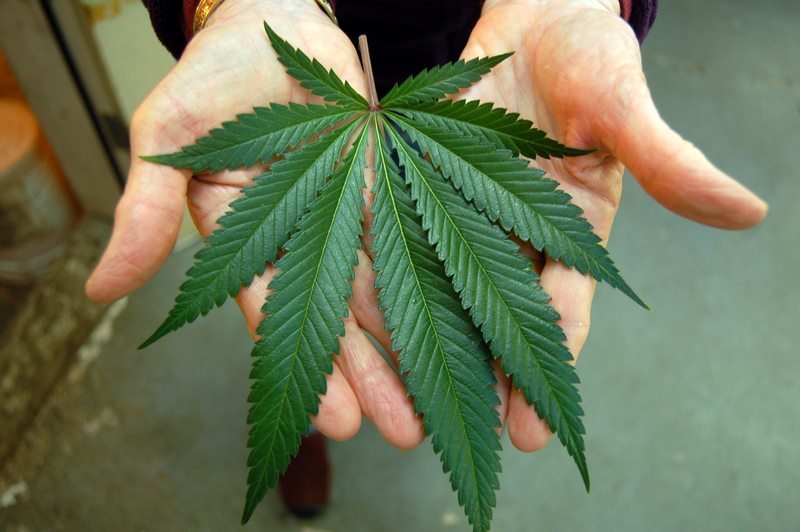If you suffer from anxiety, you’re not alone. According to the Anxiety and Depression Association of America, anxiety disorders are the number one most common mental illness in the United States, with approximately 18% of the country’s population affected. But while anxiety medications such as Xanax and Ativan have helped millions of people enjoy a better quality of life, prescription drugs are not totally effective for every patient. If your current medication isn’t providing substantial relief, medical marijuana may be able to quickly, safely, and gently reduce your anxiety.
Inhale MD was established to help Massachusetts residents with anxiety, depression, and other affective disorders access safe and effective care under a physician’s medical guidance. If you have been diagnosed with anxiety, we can provide a comprehensive evaluation to determine whether medical Cannabis would be appropriate for you. If you qualify under the Massachusetts medical marijuana law, we can create a personalized care plan designed to alleviate your symptoms and help you feel better.
To get started with a confidential consultation, contact Inhale MD at (617) 477-8886 today.
 Anxiety can be treated with a group of medications called selective serotonin reuptake inhibitors (SSRIs), which are also used to alleviate depression. Anxiety can also be treated with medications known as benzodiazepines, which are often called “benzos.” While these medications are helpful for many patients, they also have some shortcomings. For example, SSRIs can make people feel “flat” and have side effects like weight gain or sexual problems, while benzodiazepines are addictive. For these and other reasons, Cannabis may be useful for incorporation into a patient’s existing treatment plan.
Medical studies and patient surveys have shown that people from a diverse range of backgrounds report reduced levels of anxiety while using Cannabis. In fact, anxiety reduction may be the number one reason for Cannabis use. According to a study published last year in the Journal of Basic and Clinical Physiology and Pharmacology, “The most common self-reported reason for using [C]annabis is rooted in its ability to reduce feelings of stress, tension, and anxiety.”
Here are just a few examples of research in which patients have reported that marijuana lowered anxiety:
Anxiety can be treated with a group of medications called selective serotonin reuptake inhibitors (SSRIs), which are also used to alleviate depression. Anxiety can also be treated with medications known as benzodiazepines, which are often called “benzos.” While these medications are helpful for many patients, they also have some shortcomings. For example, SSRIs can make people feel “flat” and have side effects like weight gain or sexual problems, while benzodiazepines are addictive. For these and other reasons, Cannabis may be useful for incorporation into a patient’s existing treatment plan.
Medical studies and patient surveys have shown that people from a diverse range of backgrounds report reduced levels of anxiety while using Cannabis. In fact, anxiety reduction may be the number one reason for Cannabis use. According to a study published last year in the Journal of Basic and Clinical Physiology and Pharmacology, “The most common self-reported reason for using [C]annabis is rooted in its ability to reduce feelings of stress, tension, and anxiety.”
Here are just a few examples of research in which patients have reported that marijuana lowered anxiety:
 You may have heard that marijuana can produce or worsen anxiety or paranoia. A very small number of people do have a negative reaction, which is one of the reasons it is so important that you receive guidance and counseling from a physician. In many instances, experiencing paranoia or anxiety while using Cannabis indicates that the dose is too large. At Inhale MD, we work closely with each patient, requiring ongoing follow-up visits, in order to determine the appropriate dose, frequency of dosing, and method of administration (use) for optimal results.
It’s important to keep in mind that these acute effects are temporary, and are unlikely to cause long-term harm. In the vast majority of cases, the benefits of marijuana for anxiety outweigh the harms and risks. For most patients, the worst side effects of Cannabis use are limited to:
You may have heard that marijuana can produce or worsen anxiety or paranoia. A very small number of people do have a negative reaction, which is one of the reasons it is so important that you receive guidance and counseling from a physician. In many instances, experiencing paranoia or anxiety while using Cannabis indicates that the dose is too large. At Inhale MD, we work closely with each patient, requiring ongoing follow-up visits, in order to determine the appropriate dose, frequency of dosing, and method of administration (use) for optimal results.
It’s important to keep in mind that these acute effects are temporary, and are unlikely to cause long-term harm. In the vast majority of cases, the benefits of marijuana for anxiety outweigh the harms and risks. For most patients, the worst side effects of Cannabis use are limited to:
How Does Marijuana Relieve and Reduce Anxiety?
 Anxiety can be treated with a group of medications called selective serotonin reuptake inhibitors (SSRIs), which are also used to alleviate depression. Anxiety can also be treated with medications known as benzodiazepines, which are often called “benzos.” While these medications are helpful for many patients, they also have some shortcomings. For example, SSRIs can make people feel “flat” and have side effects like weight gain or sexual problems, while benzodiazepines are addictive. For these and other reasons, Cannabis may be useful for incorporation into a patient’s existing treatment plan.
Medical studies and patient surveys have shown that people from a diverse range of backgrounds report reduced levels of anxiety while using Cannabis. In fact, anxiety reduction may be the number one reason for Cannabis use. According to a study published last year in the Journal of Basic and Clinical Physiology and Pharmacology, “The most common self-reported reason for using [C]annabis is rooted in its ability to reduce feelings of stress, tension, and anxiety.”
Here are just a few examples of research in which patients have reported that marijuana lowered anxiety:
Anxiety can be treated with a group of medications called selective serotonin reuptake inhibitors (SSRIs), which are also used to alleviate depression. Anxiety can also be treated with medications known as benzodiazepines, which are often called “benzos.” While these medications are helpful for many patients, they also have some shortcomings. For example, SSRIs can make people feel “flat” and have side effects like weight gain or sexual problems, while benzodiazepines are addictive. For these and other reasons, Cannabis may be useful for incorporation into a patient’s existing treatment plan.
Medical studies and patient surveys have shown that people from a diverse range of backgrounds report reduced levels of anxiety while using Cannabis. In fact, anxiety reduction may be the number one reason for Cannabis use. According to a study published last year in the Journal of Basic and Clinical Physiology and Pharmacology, “The most common self-reported reason for using [C]annabis is rooted in its ability to reduce feelings of stress, tension, and anxiety.”
Here are just a few examples of research in which patients have reported that marijuana lowered anxiety:
- The 1999 report “Marijuana and Medicine: Assessing the Science Base” noted a study from the mid-1970s, originally published in Clinical Pharmacology and Therapeutics, in which “data indicat[ed] that patients had improved mood, a sense of well-being, and less anxiety.”
- In 2007, Dialogues in Clinical Neuroscience, citing an earlier study in the Journal of Pain and Symptom Management, pointed out that “Cannabis-treated AIDS patients reported improved appetite, muscle pain, nausea, anxiety… [and] depression.”
- In a 2014 study published in the Hawai’i Journal of Medicine & Public Health, which surveyed approximately 100 patients, “Half of all respondents… noted relief from stress/anxiety.” Additionally, “Most patients (71%) reported no adverse effects,” and “No serious adverse effects were reported.”
Is it True that Marijuana Can Increase Anxiety?
 You may have heard that marijuana can produce or worsen anxiety or paranoia. A very small number of people do have a negative reaction, which is one of the reasons it is so important that you receive guidance and counseling from a physician. In many instances, experiencing paranoia or anxiety while using Cannabis indicates that the dose is too large. At Inhale MD, we work closely with each patient, requiring ongoing follow-up visits, in order to determine the appropriate dose, frequency of dosing, and method of administration (use) for optimal results.
It’s important to keep in mind that these acute effects are temporary, and are unlikely to cause long-term harm. In the vast majority of cases, the benefits of marijuana for anxiety outweigh the harms and risks. For most patients, the worst side effects of Cannabis use are limited to:
You may have heard that marijuana can produce or worsen anxiety or paranoia. A very small number of people do have a negative reaction, which is one of the reasons it is so important that you receive guidance and counseling from a physician. In many instances, experiencing paranoia or anxiety while using Cannabis indicates that the dose is too large. At Inhale MD, we work closely with each patient, requiring ongoing follow-up visits, in order to determine the appropriate dose, frequency of dosing, and method of administration (use) for optimal results.
It’s important to keep in mind that these acute effects are temporary, and are unlikely to cause long-term harm. In the vast majority of cases, the benefits of marijuana for anxiety outweigh the harms and risks. For most patients, the worst side effects of Cannabis use are limited to:
- Temporary drowsiness
- Temporary dry mouth and/or cough
- Temporary increased appetite
